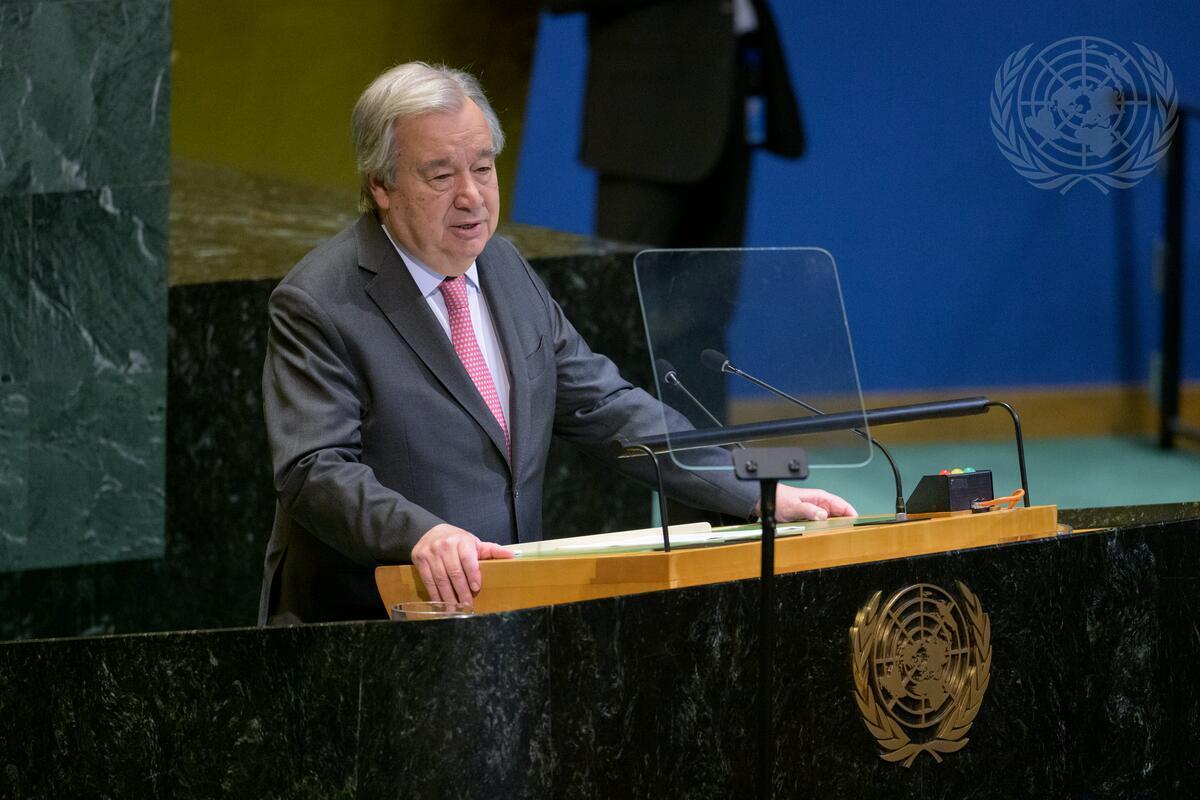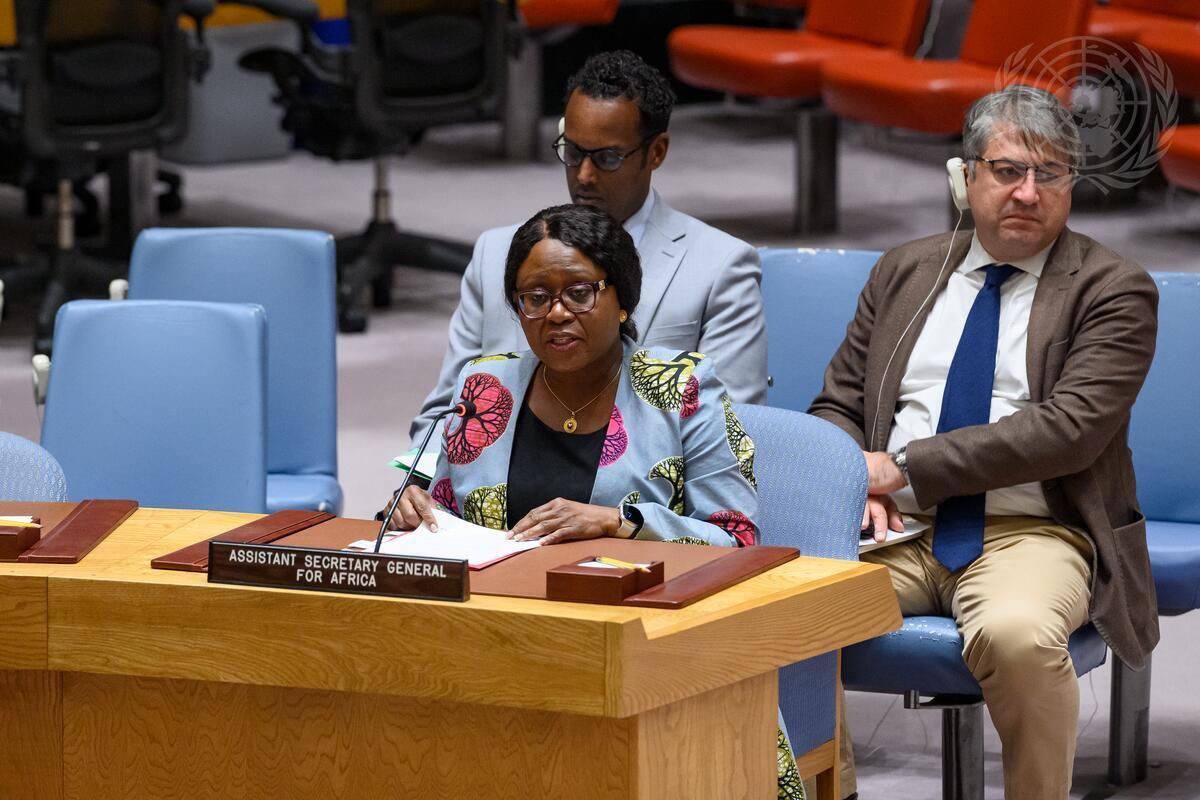In an interview with UN News’ Abdelmonem Makki, while in New York to brief the Security Council on the situation in Sudan, SRSG Perthes spoke about finding a national consensus to move forward following October’s military takeover of Sudan’s government, the de-escalation of tension in the restive Darfur region, and about the overall future of Sudan.
On 3 June 2020, the United Nations Security Council adopted resolution 2524 (2020), establishing the UN Integrated Transition Assistance Mission in Sudan (UNITAMS), a special political mission, to provide support to Sudan.
UNITAMS is supporting Sudan through a range of political, peacebuilding, and development initiatives. Can you elaborate on that?
The main purpose for UNITAMS is to be here, to help Sudan through its transition period, both with regards to the political transition towards a democratic civilian government and through the transition to peace. There is also a third transition, towards economic recovery.
Together with the UN country team, we are trying to help on these three dimensions. Given the recent events in Sudan, some things have become much more difficult. There are questions as to whether Sudan is, or will be, able to return to a path towards democratic transition. We are optimistic that this will happen, and that we can lend our support to Sudan and the Sudanese people.
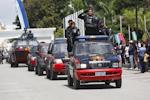
Since then, the UN was heavily involved in the mediation process between the parties, which resulted in the return of Prime Minister Abdalla Hamdok.
What do you think about the situation in Sudan now? Do you think the transitional process will go back to its normalcy?
I don't know what normalcy is because it was never a normal process. Sudan and the transition in Sudan were exceptional in many respects. The challenge is to get enough consensus in the country to embark together on the rest of the transitional period. The Prime Minister is back, but we are not yet out of the crisis.
The Prime Minister is back on the basis of an agreement which was locally mediated. Lots of local actors were involved here, we facilitated that to some extent, coordinated to some extent with the mediation initiatives, but it was very much a Sudanese mediation that took place. The crisis is not over because a substantial part of the political forces and of the public do reject the agreement between Prime Minister Hamdok and General Al-Burhan as they see it as the legalization of the coup. I think the challenge is to make clear to everybody, particularly to the domestic public, that Sudan can come, and will come, back onto the democratic path of transition. It needs a lot of confidence-building measures, starting with a thorough investigation of the human rights violations that happened after the military takeover of 25 October.
Many people have been demonstrating after the developments of October 25th and even after Mr. Hamdok was reinstated, some people have become more skeptical about the partnership between the civilians and the army. What do you think about this partnership? Is it genuine?
Well, it could have been, let me put it like that. Maybe we all idealized it a bit, the international community, but also local actors, by depicting Sudan as a model for civilian-military partnership.
I would think that most people in Sudan today would no longer speak of a partnership between the civilian and the military component. Everybody knows you cannot wish the other component away: the military cannot rule without the civilians, and the civilians cannot simply wish that the military would disappear, so they have to work together. I think the challenge will be to get a working relationship to emerge rather than thinking about it in this somewhat idealistic term as a partnership.

I meet with both regularly. There are some people, and many on social media who say I shouldn't meet with one, or I shouldn't meet with the other, or I shouldn't meet with the generals in the first place, or with militia leaders, or with people who have blood on their hands because this would legitimize certain actors. That is a misunderstanding of the role of the United Nations. The United Nations will always try to see all stakeholders and to seek the dialogue and try to avoid bloodshed and go for negotiated solutions.
Much of my talking with Prime Minister Hamdok and General Burhan, particularly after the coup of 25 October, has been about how to avoid further bloodshed and find a way out of the crisis. Sometimes, we speak about small steps to find a way out, not about the solution everybody wishes for during the period leading to elections when hopefully a full-fledged civilian democratically elected government will take over.
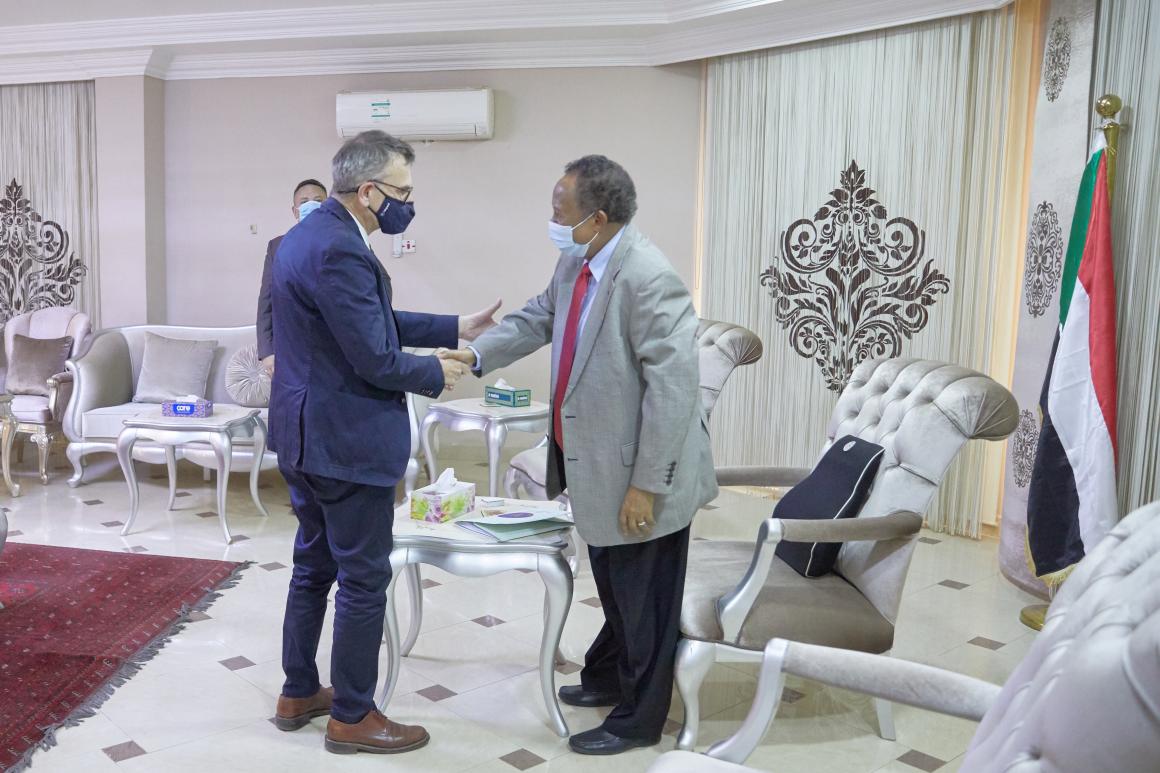
I did welcome it as a first step. I cautiously welcomed it because I always said it was a first step, which must be followed by others, a step to avoid further bloodshed, a step to potentially return to constitutional order, and possibly an opportunity to get a real dialogue started on the divisive issues for Sudan. I'm telling the people exactly this.
I'm also meeting with people who totally reject this agreement and who say they don't want any mediation, any partnership, or negotiation with the military.
Once you start talking with one another, you don't necessarily agree, and I'm not trying to convince anybody. I'm just trying to make people understand that this is what we do as the United Nations. We are going for negotiated solutions, and sparing bloodshed is very much a primary goal, a priority.
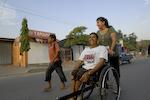
Let me say, it's not purely tribal. And sometimes tribal stands in for explaining something much more multi-causal. There is a lot of armed banditry in the region, which has little to do with tribal conflicts. Some of the inter-communal fighting is politicized and used by political actors. The lack of security and state capacity is a result of political decisions, not of the last two years but rather of the last 30 years.
I think we shouldn't overlook the political dimension in what is happening in Darfur.
What are we doing as UNITAMS? We are not a peacekeeping mission as UNAMID was. UNAMID had up to 7,000 uniformed personnel at the end, while in UNITAMS we only have 21 police officers who can help the Sudanese police in developing their own capabilities in the protection of civilians and community policing.
We are not here to replace the Sudanese state. We don't have a mandate for that. We are there to support the capacity building of the Sudanese police and other law enforcement agencies.
Mr. Volker, what do you think about the future of Sudan, amid this uncertainty?
I'm optimistic about the future of Sudan. I do see the current phase as part of a long-standing struggle over the future of Sudan, but I'm also working with the Sudanese people. I see them as intelligent, aware of their future, aware of their destiny, people that will carry their country into a better future, a democratic future. We are here to help them.
To read the Arabic version, click HERE.



